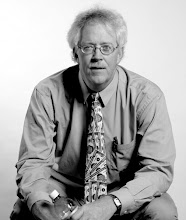Tuesday (May 28) was a class day for most of the
students in the 2013 Navajo Oral History project.
In the morning, one journalism team went on the
road north to Rock Point, Arizona, to interview a traditional Navajo rug
weaver. Nita Nez did her interview in the Navajo language, with her daughter,
Revaline, translating for the student journalists. Revaline will also
transcribe the interview and help the group with sub-titles when creating their
documentary film about Nita Nez's life.
Nita Nez, received a commemorative Navajo Oral History project shirt from class member Skylar Ogren. The shirt features the logos of both Winona State University and Diné College, the two schools collaborating on documentary journalism projects.
(above six photos by Whitney Harlos)
The rest of the students gathered at 8 a.m. in the
classroom to debrief all the interviews that have taken place over the past 10
days. Each student journalism team presented several clips from their
interviews, and listened to constructive criticism from classmates.
This can be a difficult thing. Students have
invested so much time, talent and planning into their interviews, and have a
right to be proud of their work. Nonetheless learning and skill-development are
a key part of the class.
Students were instructed to offer constructive
criticism with kindness and honesty. It doesn't really help if everyone says,
"I like it... nice job." Instead, they are encouraged to be honest
and specific with things they see that could possibly be improved upon, so
journalism teams can make changes if they wish and increase the value of the
finished documentary films.
Following the class, students had time to work
on transcribing their interviews and begin editing, organizing, and shaping
their documentaries.
After dinner, most of the students went to
Professor Miranda Haskie's home in Lukachukai, Arizona, to help Miranda, her
husband Vernon, and their children plant a large corn field with white
corn seeds by hand and shovel. Because the work group included 14 WSU students
and faculty, and several Haskies,
the work went fast, and was kind of fun.
Here, Cara Mannino and Tom Hays are ready to plant corn.
Below, Brett Gustafson walks toward the cornfield, ready to begin planting.
Laura Humes leads Skylar Ogren, Adam Maciejczak and Nik Strand to the cornfield.
As the planting began, Diné College Prof. Miranda Haskie gave WSU Prof. Tom Grier a special cup of corn seed to use while planting. It was a WSU pail-style cup that Grier gave to Haskie five years ago at the reception and premiere event for the first Navajo Oral History project films.
(above photo by Robbie Christiano)
Even though both Robbie Christiano and Miranda Haskie worked hard during the planting, in this photo, they look more like project supervisors.
Here, Laura Humes and Skylar Ogren work together planting a row of corn seeds.
Jolene Kuisle plants seed while Madison Duncan digs the holes.
The Jake Livingston documentary group also
interviewed Vernon Haskie on camera, with him talking about the skills and
friendship he shares with Livingston. Both men are accomplished Navajo
silversmiths.
Adam Maciejczak and Robbie Christiano had fun trying to catch a chicken on the Haskie property. Neither were successful.



























No comments:
Post a Comment